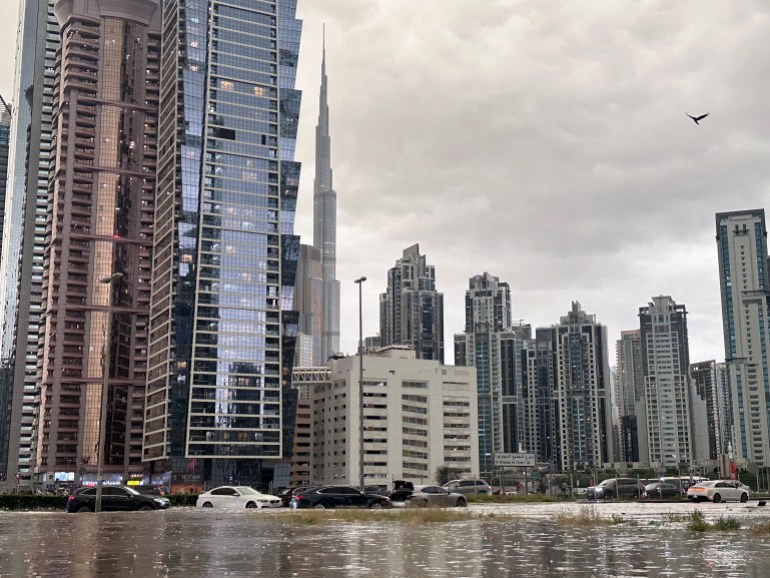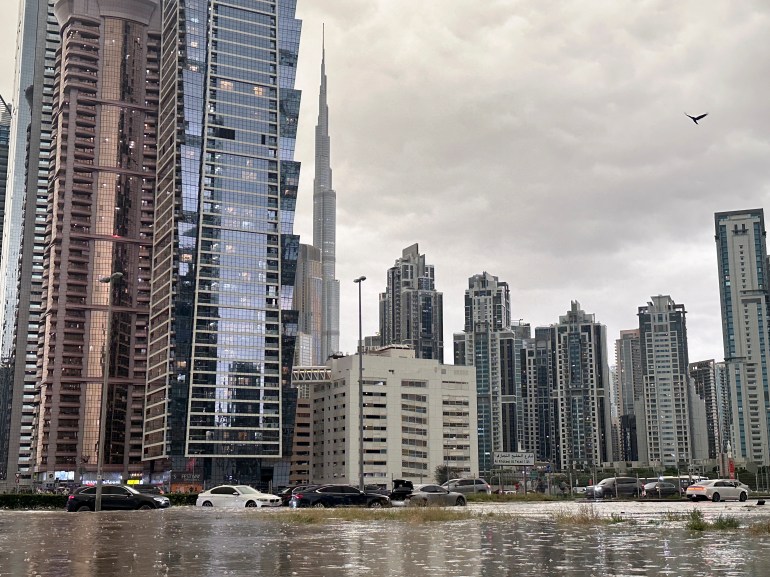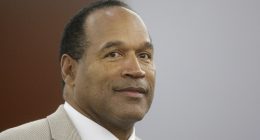A new study has found climate change caused by fossil fuel emissions is the likely reason for the extreme weather events.
Global warming caused by fossil fuel emissions “most likely” exacerbated the intense rains that lashed the UAE and Oman last week, causing deaths and widespread flooding, an expert group of scientists has found.
The World Weather Attribution (WWA), an international group of scientists that investigates extreme weather events, said climate change caused by fossil fuel emissions is the probable reason but cannot be pinpointed “with certainty”.
The study compiled by 21 international researchers found extreme rainfall in El Nino years has become 10-40 percent heavier in the region affected.
“Warming, caused by burning fossil fuels, is the most likely explanation for the increasing rainfall,” WWA said in the study published on Thursday.
“There are no other known explanations” for the sharp rise in precipitation, the group added.
Twenty-one people died in Oman and four in the United Arab Emirates, which was battered by the heaviest rainfall since records began for the desert Gulf state 75 years ago.
The oil-producing states have been experiencing extreme heat brought on by global warming. But last week’s floods revealed the additional risk of exceptional weather events as the planet heats up.
“The UAE and Oman floods have shown that even dry regions can be strongly affected by precipitation events, a threat that is increasing with increasing global warming due to fossil fuel burning,” said Sonia Seneviratne, a WWA member and professor at Zurich’s ETH university.

Extreme rains
The WWA study analysed historic weather data and climate models to determine changes in rainfall patterns in the area, including in the years affected by El Nino, a climate pattern that describes the unusual warming of surface waters in the eastern tropical Pacific Ocean.
It found extreme rains were significantly less intense in the years before 1.2 degrees Celsius (2.2F) of warming above pre-industrial levels.
“Extreme rainfall events have become at least 10 percent heavier in the UAE and Oman,” said Mariam Zachariah, a WWA member and researcher at London’s Imperial College.
“This finding … agrees with the basic physics that a warmer atmosphere can hold more moisture.”
The storm first landed in Oman on April 14, killing at least 21 people in flash floods and other incidents, according to the official Oman News Agency.
It hit the UAE on April 16, dumping nearly two years’ worth of rain that flooded homes, roads, malls and offices and left four people dead.
Dubai faced severe disruption for days with major roads blocked by floods, power outages and some residents trapped in their homes. Dubai Airport, the world’s busiest by international travellers, cancelled 2,155 flights, diverted 115 and did not return to full capacity until Tuesday.
“The situation was unprecedented in its severity but we are a country that learns from every experience,” Dubai ruler and UAE Prime Minister Sheikh Mohammed bin Rashid Al Maktoum said on Wednesday, announcing a $544m package to repair homes.
Friederike Otto, a climatologist and WWA member, said the world agreed at COP28 in Dubai to “transition away” from fossil fuels, but nearly half a year later countries are still opening new oil and gas fields.
“If the world keeps burning fossil fuels, rainfall in many regions of the world will get heavier and heavier, resulting in deadlier and more destructive floods,” Otto said.
Read More: World News | Entertainment News | Celeb News
Aljazera









